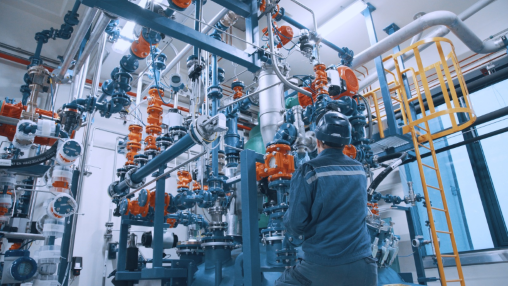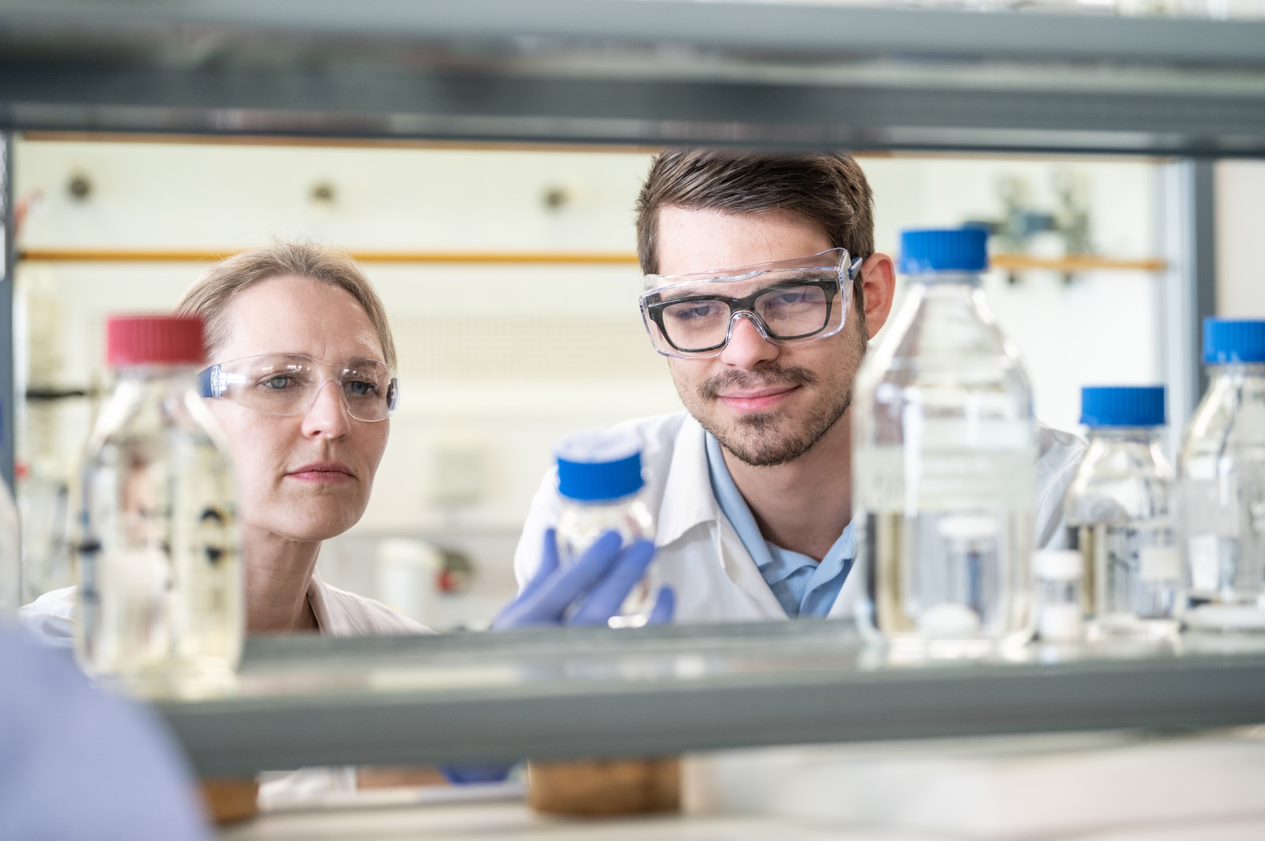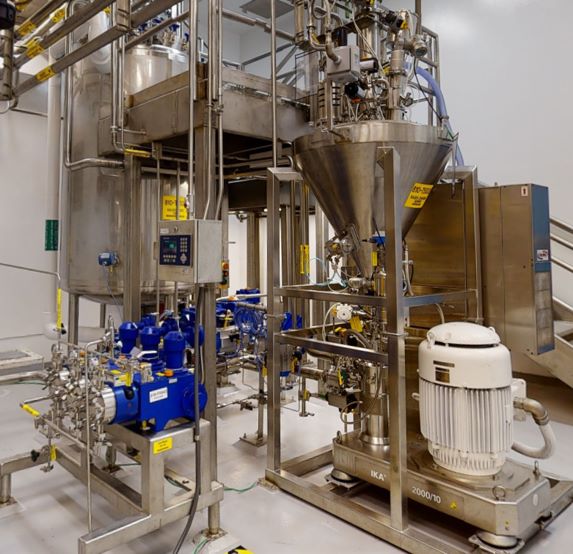API drug development and manufacturing services
Scientific expertise that speeds your journey
The successful development and manufacture of small molecule active pharmaceutical ingredients (API) rests on speed, efficiency, and quality across your journey. We offer scientific expertise, world-class technology, and a comprehensive range of solutions to help you reach your clinical milestones quickly and accelerate your path to commercialization.
Bring your small molecule to market faster with a partner who connects every step. Through Accelerator™ Drug Development, you’ll benefit from our unified, one-team approach that seamlessly integrates API development and product manufacturing—simplifying complexity, reducing risk, and helping you move forward with confidence.
From early process optimization and scale-up to commercial production, we provide key services across the lifecycle to get your project to market. Our focus is always on your molecule—whether you require early-phase material or late-phase and commercial supply, we have the capabilities, expertise, and experience to meet your API needs.

100+ commercial products
Supplying API to companies around the world
230+ small molecule projects
More than 230 active small molecule API projects in 2020, from preclinical through Phase II
89% RFT rate
Average right-first-time (RFT) rate of 89% in 2020
50 years of experience
Leading the industry in the manufacture of cGMP API since 1974
API CDMO solutions and capabilities
Route scouting
Establishing the best synthetic route for your molecule is the basis for a reliable supply throughout your product’s lifecycle. During route scouting, we consider the following when selecting the ideal pathway:
- Safety
- Efficiency, purity, and cost
- Ease of optimization and scale-up
- Intellectual property (IP) review
- Security of supply of raw materials
- Impact on waste and the environment
Solid-state chemistry
Finding the most appropriate physical form for your API is critical, as this impacts the downstream performance of your product. Optimizing characteristics such as size and shape, particle size distribution, flow, density, bioavailability, and melting point enables more efficient formulation and manufacturing process development at the drug product stage. Our extensive capabilities and experience in solid-state chemistry ensure that you receive the best solid form for your drug product development and scale-up.
Helpful resources
When you partner with us, you’ll work directly with scientists who have a deep knowledge of chemistry and many years of experience successfully supporting early- and late-phase clinical development programs and commercial-scale manufacturing. Our experts offer you cutting-edge capabilities in multistep chemical synthesis, for both traditional and complex API manufacturing.
Scale-up
Our experts offer a full range of capabilities and analytical services to execute with the highest degree of flexibility and deliver on time with exceptional yields and superior quality:
- Risk assessment and proven acceptable range (PAR) studies
- Validation of analytical methods and manufacturing
- Quality assurance and regulatory compliance support for the chemistry, manufacturing, and controls (CMC) portion of your submission, as needed
- Technology transfers to move projects between facilities while preserving product supply and process efficiency
At our clinical development and commercial supply API manufacturing facilities, located in North America and Europe, teams of experts work continuously to optimize processes, increase outputs, and reduce timelines. All our facilities comply with cGMP and safety regulations and are routinely inspected by national regulatory agencies.
Technology transfers
We view technology transfers as an opportunity to use our integrated approach and our commitment to efficiency to give you a strategic and financial advantage. Tech transfers, for scale-up or to move a project between facilities, are part of our normal course of business. If the transfer is urgent, we can execute it quickly and effectively to get your project back on track and preserve your product supply. In all cases, we are driven by your deadlines, flexible in our approach, and determined to get it right the first time, every time.
Helpful resources
Our team builds on a foundation of efficiency, effectiveness, and safety, using innovations in science and technology to continually improve your synthetic processes for marketed products. We also ensure that your process remains both competitive and cost-effective throughout the product lifecycle.
- Our global expertise in technology transfers can help you quickly and reliably scale up production or shift production between sites
- Advances in technology and the availability of safer reagents potentially result in fewer steps, faster processing time, greater yields, less environmental impact, and reduced cost
Helpful resources
We have analytical method development and quality control laboratories staffed by highly experienced teams within each of our manufacturing and development sites. Our experts will support your analytical needs at every phase of the clinical development and commercial-scale manufacturing process through highly reliable stability, purity, assay method development, and quality control testing procedures.

Particle size reduction
Uniform particle characteristics are fundamental when manufacturing a formulation-enabling API. Carefully defined particle size distribution can help improve flow properties, which are essential in drug product development and can improve solubility to increase your product’s bioavailability.
With experienced teams and leading technologies, we offer particle size reduction solutions for all stages of API development and commercial manufacture:
- Milling capabilities from laboratory- to production-scale
- Simple deagglomeration through coarse grinding
- Micronization via numerous methods
Helpful resources
Spray dried amorphous dispersions support the development of advanced drug formulations, helping to meet precise requirements that ensure drug bioavailability, stability, and manufacturability.
Thermo Fisher Scientific is an industry-leading CDMO with a depth and breadth of experience in providing biopharma companies with spray drying capabilities from early development through commercial scale-up.

Helpful resources
Our API Sites/Locations

